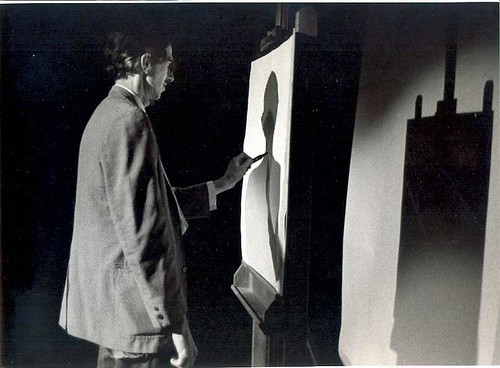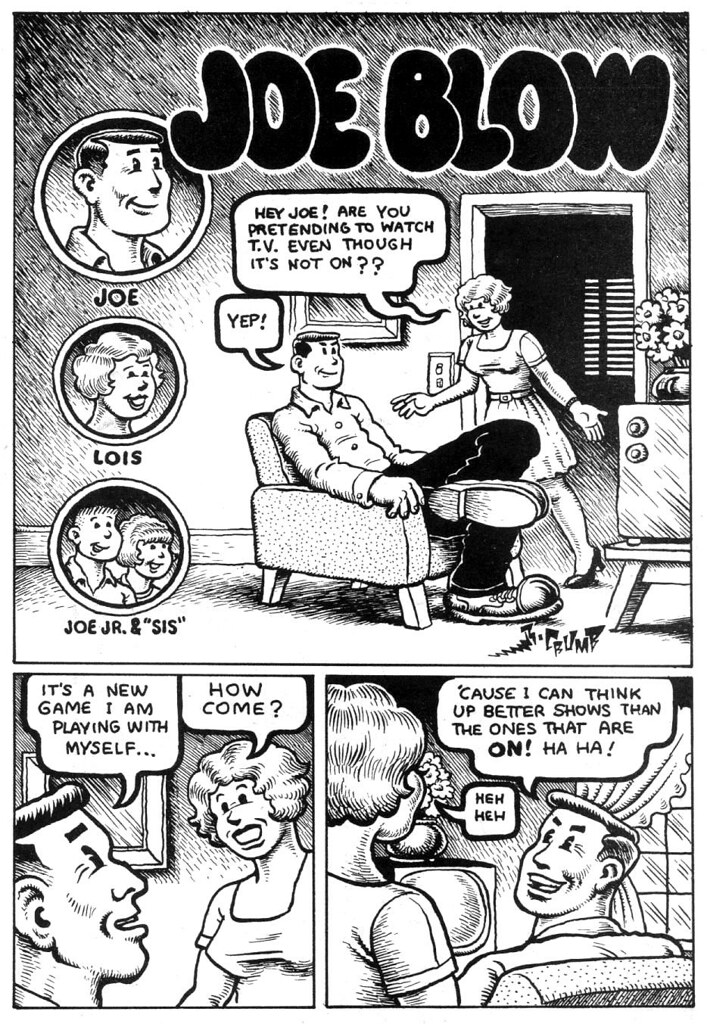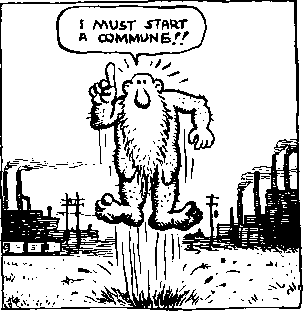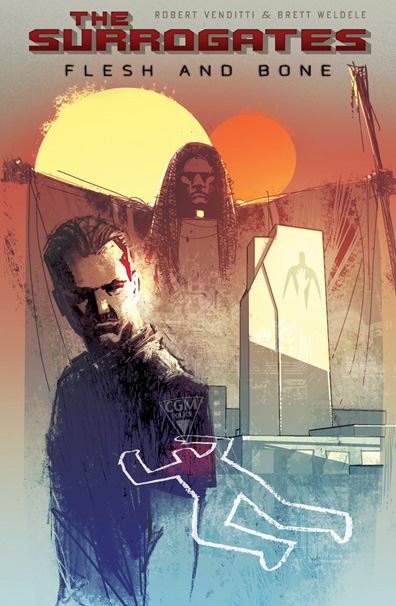"Cute? Let me see--I want to see! ...Yuk! He isn't cute--he's gruesome. ...He's just standing there -- why is he just standing there? He's sort of swaying -- why is he sort of..."
"AWWWWWW."
"Faw down go boom."
"Hmm. Perhaps he is not all that gruesome..."
Having finished it, I'm actually surprised how much I really likes this book. Surprised because for much of the time I was reading it I wanted to be done with a dialogue balloon as soon as I started it. Cerebus--a stocky crude barbarian aardvark largely inspired by Conan--was definitely a wordy read. Reading the first volume felt a lot like sitting down and reading 3 years worth of archives of a web-comic. But the fuzzy gray guy really has a way of worming his way into your affections and growing on you without you noticeing until it's too late. Indeed, "endearing" would probably be the last word you would use to describe him after reading the first issue through, but by the end of the first volume that adjective pretty much becomes his main function.
Despite Cerebus's flaws as an apparent jackass with no principles, his redeeming rugged ardvarkian exterior ends up really working for him once you see enough of it.
Like Wolverine, only not as sweet and tender.
By the end of the first volume a strong flavor is already twisted into the back of your consciousness that he is somehow, not actually that jackass he seems to be. Something that anyone with practical intelligence or girl parts in series tends to pick up on upon meeting him. I think the rest of the series will involve some questions and answers and self discovery in that department, as 'Cerebus an earth pig born' seems quite oblivious, and or apathetic, to his nature of (ironically) integrity in the face of the hair-pulling state of the status-quo in the society around him.
 Though it seems like injustice and just annoying, harsh reality at first glance, when you look at the track record of his "adventures", he continues to get swept up by other people's plots and problems, and idiocy so much, that it seems like Cerebus is unconsciously bringing it upon himself. It's the seed of total alienation combined with the very very buried seed of need to be acknowledged and have human contact. But that's all covered up by lots of booze, scars, and sarcasm.
Though it seems like injustice and just annoying, harsh reality at first glance, when you look at the track record of his "adventures", he continues to get swept up by other people's plots and problems, and idiocy so much, that it seems like Cerebus is unconsciously bringing it upon himself. It's the seed of total alienation combined with the very very buried seed of need to be acknowledged and have human contact. But that's all covered up by lots of booze, scars, and sarcasm.He talks a lot about chopping the heads off of characters that, as the reader who has to put up with them as well, you'd really like him to chop the heads off--of but he almost always ends up hanging around with them and complaining mentally instead. After all, where else does Cerebus have to go and what else does he have to do but party in the tavern? Methinks there is a strong possibility that Cerebus's reincarnation was Mrs. Dalloway, and Mrs. Dalloway's is Dexter. Ironically at a dinner party Cerebus would kill Clarissa, causing Dexter to kill Cerebus, very quickly.
There are however some major problems in this series --the pacing and the plotting (clarity). It's too wordy! (combined with the colloquialisms and some characters that literally say the same thing 3 times in a sentence its just too much). There is a certain extent to which this is a combination of an excessive reliance on play by play account of things like military speak, as well as verbosity of character for the sake of the writing process--then there's also that key element of making you want to rip the heads off of everyone around Cerebus as much as Cerebus himself does. It's a procedural, episodic comic that relies on a deeply rooted mythology that I feel in the first volume is way too broad and uncommitted to (eg. characters will be brought back and instances referred to but you have no idea who any of their names are and which cities and locations differ from others. making the connections would involve a lot of painstaking backtracking research which isn't worth it because there's usually no necessary plot point made out of the reference).
This map helps.
I can easily see this as the growth of the story and development of the character from the initial seemingly random excersize the idea was, but that's what's kind of annoying. The aardvark thing actually does start to make sense. The actual animal manages to be totally adorable and hideous at the same time.
It needs a re-write and then it could be totally wonderful and amazing but the material between the spaces just isn't there right now in a really solid delivered form ...much like Neil Gaiman's novel Neverwhere, but that's a different blog post. Perhaps I in general think of comics (and all narrative mediums for that matter) too much like "literary texts" ...like novels, and hold them to the same esteem and creative process when the production expectations and process is totally different.
I don't totally know why, but I still love Cerebus.
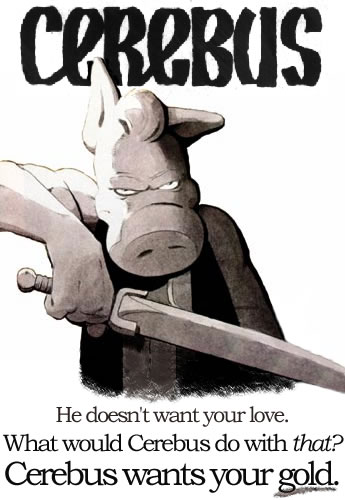






 PLANETARY did what
PLANETARY did what 